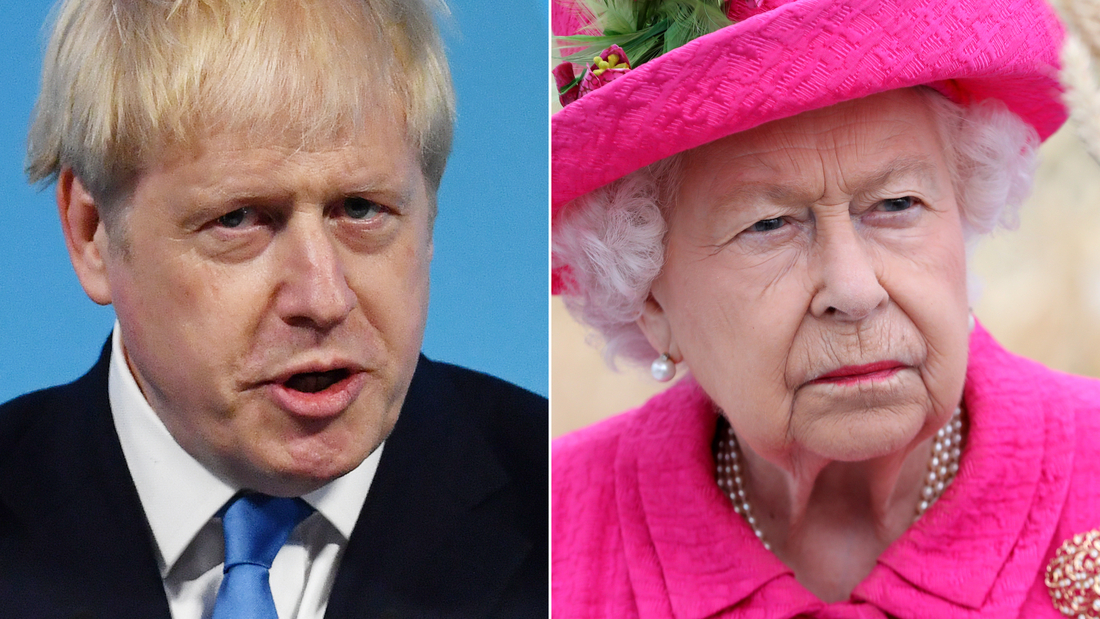[ad_1]
Johnson previously claimed that he wanted to suspend — or prorogue — Parliament so that he could lay out his new government’s legislative agenda in five weeks’ time. His critics, however, claim that the real purpose of the move was to prevent his government being held to account as it sprints towards the Brexit deadline on October 31. The court agreed, saying that Johnson’s move was motivated by the “improper purpose of stymying Parliament.”
The ruling itself doesn’t mean that Parliament will immediately be recalled. The UK’s Supreme Court will hear a final appeal next week that will resolve the issue.
But it turns up the heat in the pressure cooker — and provides Johnson’s opponents with more evidence of his weakness and vulnerability.
Since becoming Prime Minister, Johnson has been vocal in his commitment to leave the EU on October 31, whether or not there is a deal in place with Brussels. Given the sharply-divided Brexit debate, an unelected PM pursuing a policy for which there is no clear majority, which could lead to food shortages and economic chaos, is — to say the least — controversial.
Since Parliament returned from its summer break two weeks ago, it has handed Johnson no fewer than six defeats. Johnson’s government has been legally obliged to request a Brexit extension from the EU if he doesn’t get a deal, forced to publish embarrassing details from their internal communications, and denied a request to hold an early election.
The defeats were no great surprise. His predecessor, Theresa May, left him with a working majority of just two, and instead of building a parliamentary consensus around a Brexit compromise, leaned into his role as Brexiteer-in-chief. That led to the infamous rebellion last week and the subsequent sacking of 21 MPs. If it was tough for his government to pass any legislation before, it’s pretty much impossible now. No wonder he wanted to suspend such a pesky Parliament.
For a struggling Prime Minister, Johnson’s strategy might seem unorthodox. But his gaze these days extends beyond parliamentary votes.
It’s been obvious for months that an election is looming. Johnson even tried twice to call one on his terms. Everything happening in the UK’s politics right now must be seen in this context. Johnson doesn’t want to request a Brexit extension from the EU and has indicated he will ignore the instruction from Parliament to do so. He has suspended Parliament, thus prohibiting it from messing with his plans any further.
If an election were held tomorrow, Johnson could credibly say to his Brexit-supporting base that he had done everything in his power to leave the EU, but Remainer lawmakers had frustrated him at every turn.
It’s a risky road to tread, but so is every other path in Brexitland right now. Just as Johnson needs to prove to his base that he is doing everything he can to secure the UK’s departure on October 31, his opponents need to prove that they are doing everything they can to avoid a no-deal Brexit.
That’s why they wouldn’t let Johnson have an election on his own terms and it’s why they are fighting tooth and nail to get Parliament back on its feet.
If the UK’s Supreme Court decide that the suspension of Parliament was indeed unlawful, then the House of Commons will reconvene. The working assumption among constitutional experts is that, because Parliament was formally prorogued, the government would be obliged to put forward its legislative agenda for the new session in the form of a Queen’s Speech.
That would then be subject to a vote — one which Johnson stands little chance of winning, increasing the inevitability of an election.
If the Supreme Court doesn’t force lawmakers to return to work early, then the UK is back on track for two weeks of absolute chaos when Parliament reopens under the current schedule on October 14.
The Brexit battleground has shifted. Once the argument was between people wanting to leave the EU or stick with it. Now, it’s a fight between those who want to force Brexit through by the end of October and those who will do anything to avoid no-deal.
In both scenarios, it’s hard to see how the UK doesn’t end up with an early election. If Parliament is forced to return ahead of schedule, those who oppose Johnson’s “do or die” mantra will have the chance to further frustrate his Brexit plans.
The question they must ask themselves, however, is how much this ultimately helps Johnson in his campaign to put the people against the parliament. Because in case they hadn’t noticed, that started a long time ago.
[ad_2]
Source link


